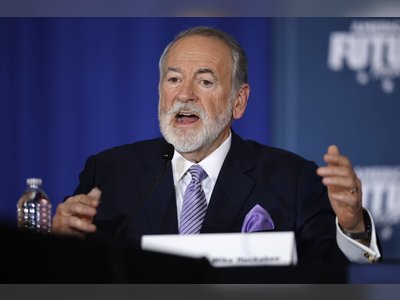Saudi Arabia's Vision 2030 Gains Momentum with Major Non-Oil Sector Growth in Q2 2024
Saudi Arabia's Vision 2030 sees non-oil sector driving major GDP growth, reflecting resilience and alignment with economic goals.
Saudi Arabia's Vision 2030 is gaining momentum as significant progress has been reported in Q2 2024. The Saudi Council of Economic and Development Affairs reviewed global economic trends, vision programs, and government performance during a virtual meeting, highlighting advancements in creating a vibrant society, a thriving economy, and an ambitious nation.
Building on this progress, non-oil sectors were a major driver of Saudi Arabia's GDP in 2023, contributing 49.9% and recording a 4.4% growth. This achievement, underscored by the Saudi Central Bank's Financial Stability Report, reflects the resilience and growth of the Saudi economy and its financial sector, aligning neatly with the objectives of Vision 2030.
Shifting to news from China, a tragic incident occurred at a Walmart in Shanghai's Songjiang district, where a stabbing over an economic dispute led to three deaths and injured 15 others. The suspect, a 37-year-old man, was arrested, and while three victims succumbed to their injuries, others are recovering without life-threatening conditions.
Meanwhile, the southeastern United States is reeling from the devastating impact of Storm Helene, which has left 116 dead and millions without power. Among the hardest-hit areas is North Carolina's Buncombe County, with severe flooding in Asheville resulting in at least 35 deaths and 600 people unaccounted for, prompting President Joe Biden to call it a "history-making" storm.
Adding to the economic disruptions, a major strike by dockworkers at 14 key US ports is threatening a $4.5 billion weekly economic hit. With tens of thousands of workers on strike over wage and automation disputes, and President Biden yet to intervene, the effects on trade are already being felt as negotiations over the master contract remain stalled.
On the global stage, former Dutch Prime Minister Mark Rutte is set to take on a new role as NATO’s Secretary-General starting October 1 amidst rising geopolitical tensions. Rutte will face significant challenges, including Russian aggression, strained EU relations, and uncertainties over the US presidential election, where his extensive European political experience and support for Ukraine will be pivotal.
Building on this progress, non-oil sectors were a major driver of Saudi Arabia's GDP in 2023, contributing 49.9% and recording a 4.4% growth. This achievement, underscored by the Saudi Central Bank's Financial Stability Report, reflects the resilience and growth of the Saudi economy and its financial sector, aligning neatly with the objectives of Vision 2030.
Shifting to news from China, a tragic incident occurred at a Walmart in Shanghai's Songjiang district, where a stabbing over an economic dispute led to three deaths and injured 15 others. The suspect, a 37-year-old man, was arrested, and while three victims succumbed to their injuries, others are recovering without life-threatening conditions.
Meanwhile, the southeastern United States is reeling from the devastating impact of Storm Helene, which has left 116 dead and millions without power. Among the hardest-hit areas is North Carolina's Buncombe County, with severe flooding in Asheville resulting in at least 35 deaths and 600 people unaccounted for, prompting President Joe Biden to call it a "history-making" storm.
Adding to the economic disruptions, a major strike by dockworkers at 14 key US ports is threatening a $4.5 billion weekly economic hit. With tens of thousands of workers on strike over wage and automation disputes, and President Biden yet to intervene, the effects on trade are already being felt as negotiations over the master contract remain stalled.
On the global stage, former Dutch Prime Minister Mark Rutte is set to take on a new role as NATO’s Secretary-General starting October 1 amidst rising geopolitical tensions. Rutte will face significant challenges, including Russian aggression, strained EU relations, and uncertainties over the US presidential election, where his extensive European political experience and support for Ukraine will be pivotal.











